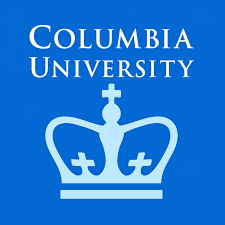Columbia University is one of the world's most important centers of research and at the same time a distinctive and distinguished learning environment for undergraduates and graduate students in many scholarly and professional fields. The University recognizes the importance of its location in New York City and seeks to link its research and teaching to the vast resources of a great metropolis. It seeks to attract a diverse and international faculty and student body, to support research and teaching on global issues, and to create academic relationships with many countries and regions. It expects all areas of the university to advance knowledge and learning at the highest level and to convey the products of its efforts to the world.
Members:
Resources
Displaying 6 - 10 of 13Securing Livelihoods and Land Tenure in Rural Myanmar
The Myanmar government introduced two new land laws in 2012 as part of an effort to liberalize land markets. This report analyzes the implementation of these laws using theory, field research, and a comparative regional analysis. It also offers recommended interventions.
Securing Livelihoods and Land Tenure in Rural Myanmar
The Myanmar government introduced two new land laws in 2012 as part of an effort to liberalize land markets. This report analyzes the implementation of these laws using theory, field research, and a comparative regional analysis. It also offers recommended interventions.
Securing Livelihoods and Land Tenure in Rural Myanmar
In the context of transition to a more open form of government, the Myanmar government has begun to liberalize land markets and, in 2012, enacted two major land-related laws. Implementing these new land laws has proven challenging, however, as it has been difficult to integrate these laws with the existing customary practices of various ethnic minorities. To address these and other issues UN-HABITAT Myanmar is assisting the Myanmar government in developing a Land Administration and Management Program (LAMP).
Securing Livelihoods and Land Tenure in Rural Myanmar
Executive Summary: "In the context of transition to a more open form of
government, the Myanmar government has
begun to liberalize land markets and, in 2012, enacted two major land-related laws.
Implementing these new land laws has proven challenging, however, as it has been difficult to
integrate these laws with the existing customary practices of various ethnic minorities. To
address these and other issues UN-HABITAT Myanmar is assisting the Myanmar government in
developing a
Land Administration and Management Program
(LAMP).
F.a: Gedio Community Resilience Enhancement Project
General
Land degradation is a prevalent environmental problem in Ethiopia, exacerbated by the effects of climate change. It's one of the main reasons for low and declining agricultural output, as well as persistent food insecurity and rural poverty. Rapid population growth (2.5 percent per year), severe soil erosion, deforestation, low vegetative cover, and uneven crop and livestock production are all common drivers of land degradation in Ethiopia. Gedeo zone is made up of six districts/Woredas and two town administrative, with a population of 1 million people, of which 85.6 % live in rural areas. Wonago and Yirigachfe woredas, in particular, have a population density of 1329 people per square kilometer, making them the most densely populated areas in the country, with extensive land use by small scale farmers in both woredas. Due to this, access to better livelihoods is limited. Furthermore, the two woredas have been dealing with serious environmental issues as a result of a massive and widespread overuse of natural resources. Drought has regularly harmed important livelihood activities such as agriculture, livestock, water and natural resources, and biodiversity resulting in acute food shortages, resource conflict, and a severe economic blow to the local economy. Furthermore, because of the dense population, the majority of households are affected by seasonal drought shocks in addition to health challenges. The project aims to address these challenges through rehabilitation of degraded lands, natural resource conservation activities, and diversification of income to reduce the over utilization of resources. Through the project ativities climate change adaptation capabilities and livelihood opportunities are enhanced, and awareness and practices of target community on climate change adaptation mechanisms are improved. The beneficiaries of the project are people in the project area who get their living from the land as well as the officials who work for land, argriculture and environmental issues. The implementing agency is the Ethiopian Evangelical Church Mekane Yesus-Development and Social Services Commission (EECMY-DASSC).





